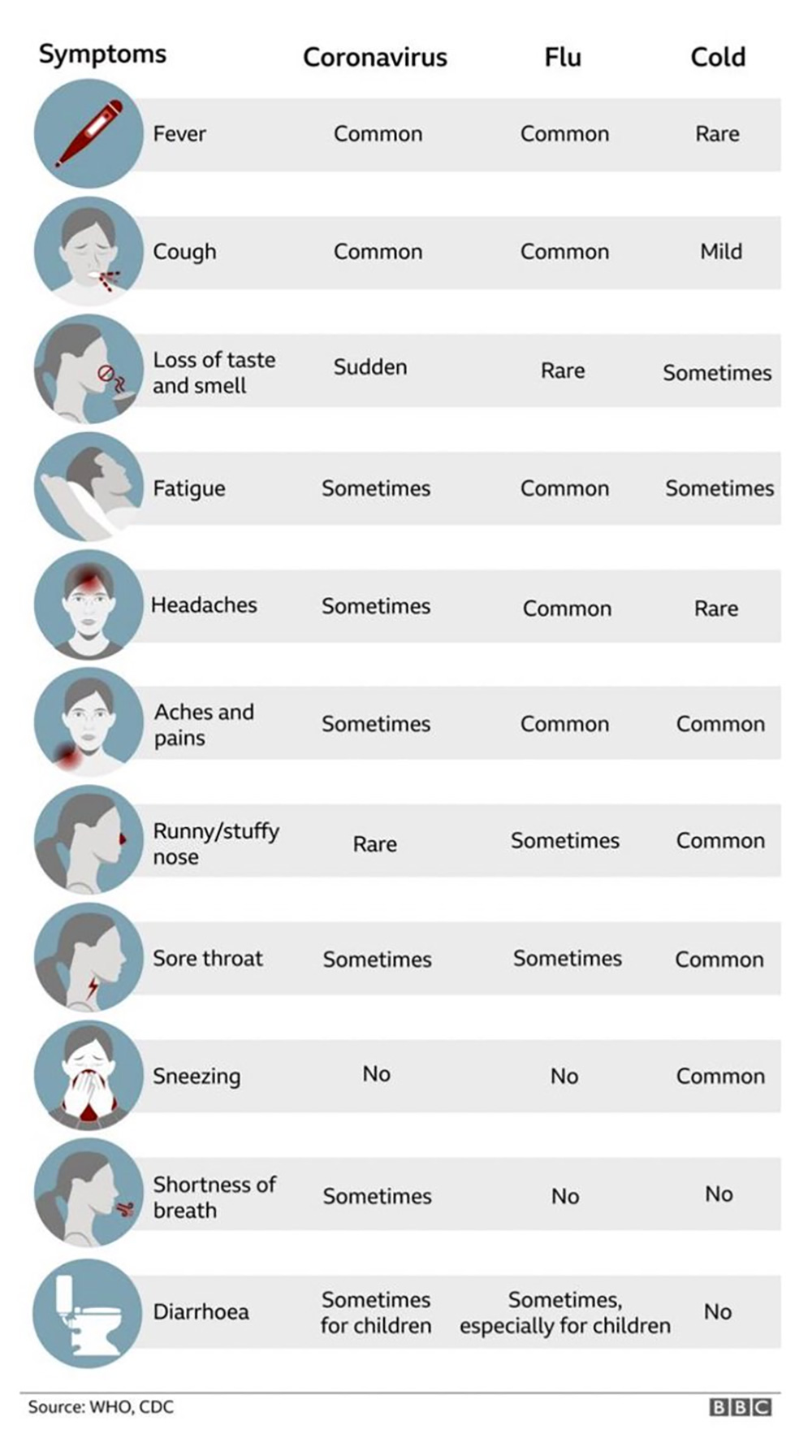
28 Oct How to tell if you have a common cold, flu or COVID-19
With winter approaching and the children returning to school, we are entering the traditional season for colds and flu. This year we have the additional complication that symptoms of those two illnesses can be broadly similar to those experienced by people who have had Covid-19. In many cases, medical professionals also have difficulties in telling the viruses apart and will need to do some further tests to be sure.
Fever
A high temperature is 37.8C or above. A fever like this can happen when the body is fighting off any infection – not just coronavirus. Although fever is a key coronavirus symptom, it could be flu or a different infection. A high temperature is unlikely with a cold.
Cough
You can suffer with a cough if you any of the three infections, however the cough associated with a cold tends to be mild. A coronavirus cough means coughing, a lot, for more than an hour, or three or more coughing fits or “episodes” in 24 hours. You should get tested for coronavirus if you develop a new, continuous cough.
Loss or change to smell and taste
These are key symptoms of coronavirus and mean you should get a test.
It could still be that you have a simple cold. But you need to check, even if you don’t feel unwell, to avoid the risk of spreading the virus.
Runny or blocked nose
As we head into winter and with children back to school and more workplaces open, lots of people will be getting colds. It is a rare symptom of Covid-19 and so if you do not have a fever and cough or loss of smell and taste, you do not need a test.
Sneezing
Sneezing is not a symptom of coronavirus, and unless you also have a fever, cough or loss of smell and taste, you do not need a test.

Colds are a mild upper respiratory illness with a runny, stuffy nose without fever. The symptoms have a gradual onset in most cases. Doctors mainly diagnose colds using clinical observation and medical history. No tests are necessary.
Influenza viruses cause the flu. These viruses usually cause more serious symptoms in the respiratory system than cold-causing viruses. Hallmarks of the flu include mild to high fever, moderate to severe headache, cough, fatigue, and body aches/pains. Flu symptoms tend to develop rapidly. Doctors can do a rapid test while in clinic from a nasal swab.
Covid-19 infected people may not be aware they have the virus and may not show any symptoms. The main symptoms of COVID-19 are fever (usually high), moderate to severe coughing, and shortness of breath. Other symptoms and signs may include a sore throat, diarrhoea, body aches and pains, and a stuffy or runny nose.
As there is so much overlap between the symptoms of Covid-19 and the flu it is important that you immediately isolate, especially if you have had known contact with an infected person. Speak to one of the Health at Hand doctors if you are unsure and we can advise you on whether you need a Covid-19 or flu test and we can guide you on where to get them done.
Don’t forget to get your flu vaccine this year and continue with hand-washing, social distancing and wearing your masks to reduce your chances of getting the flu or Covid-19.



